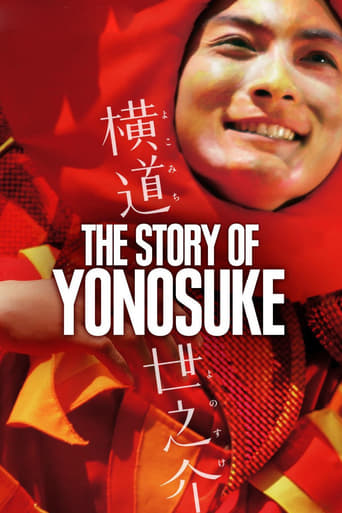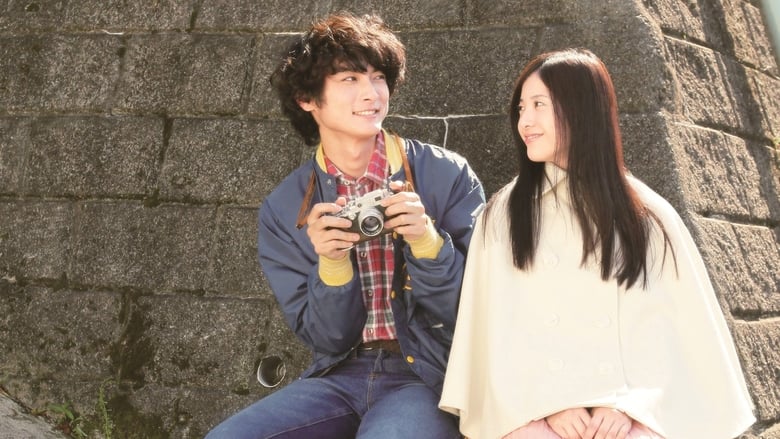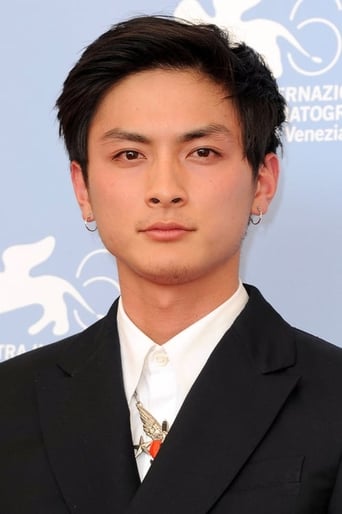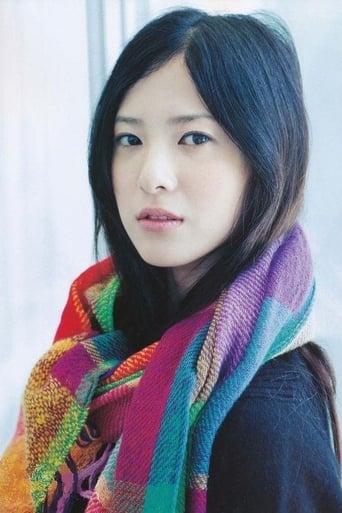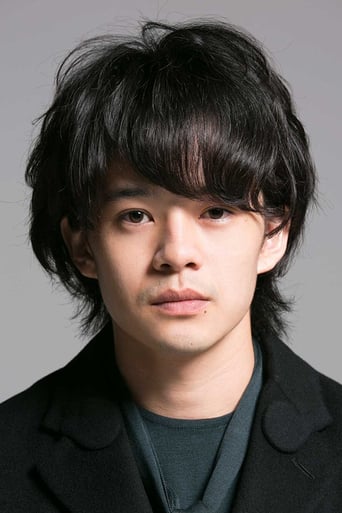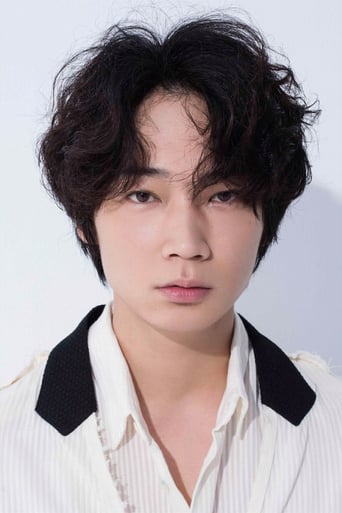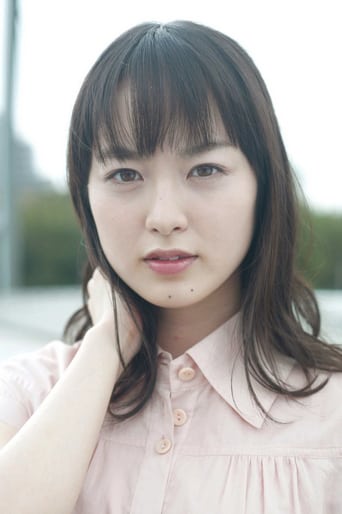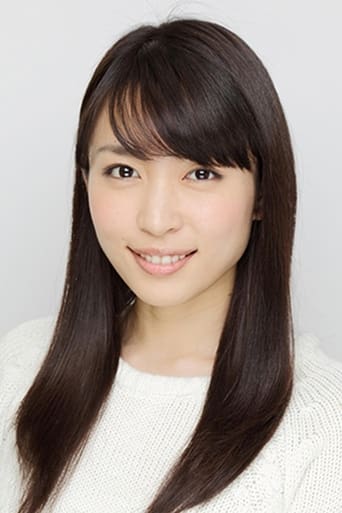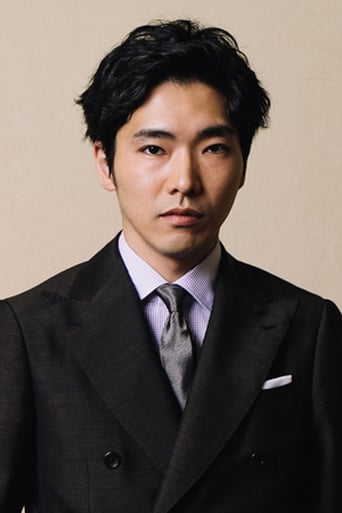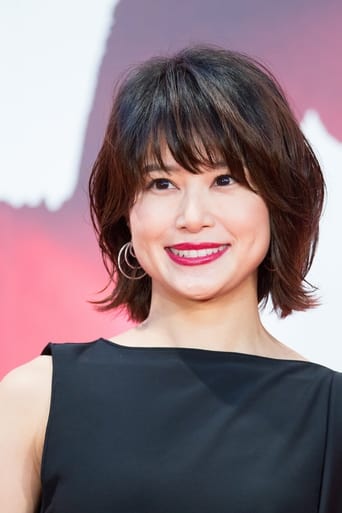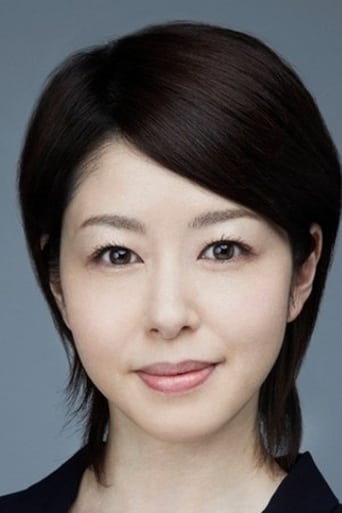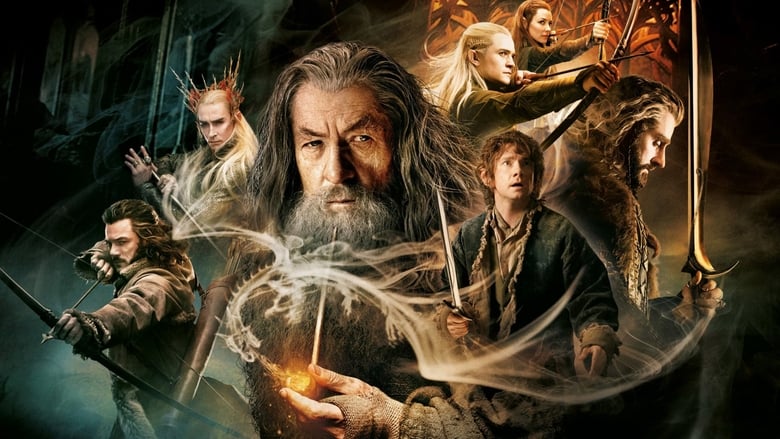The year is 1987 and Japan is just reaching the peak of its economic success. Eighteen-year old Yonosuke Yokomichi arrives in Tokyo from Nagasaki. Ordinary in every way possible, he lives in a suburb far from the excitement of the big city and commutes to a university in the center of Tokyo.


Similar titles

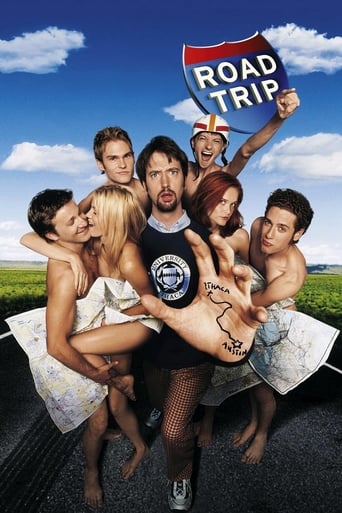


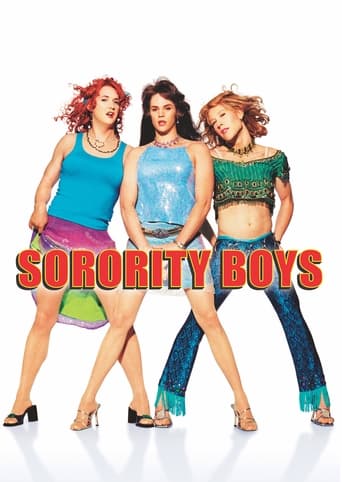
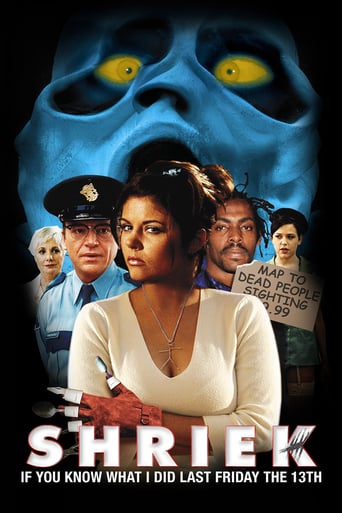
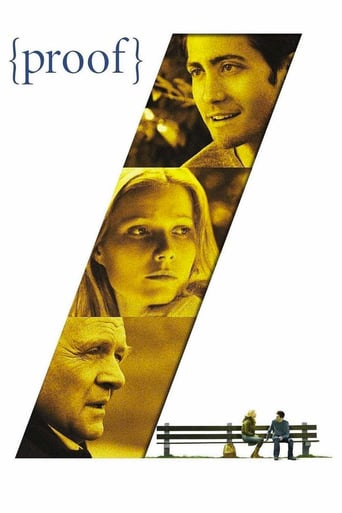
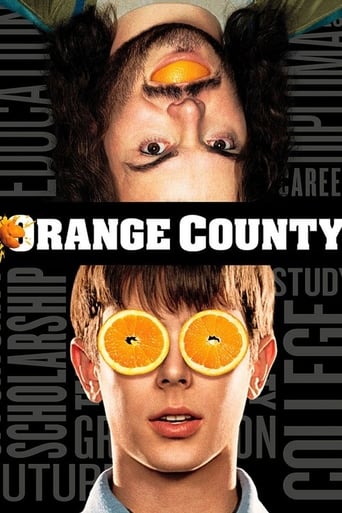
Reviews
Based on the novel "Yokomichi Yonosuke" by Shuichi Yoshida, this is a coming out of age story, as much as a story for reminiscing of the past. In this case, it was the 80's Japan, where economy was still booming, and more importantly, the hope of "anything is possible" was still happening. The film starts with a static long take shot near the exit of a Tokyo metro station. We saw our protagonist Yonosuke (played very lively by Kengo Kora), a colleague freshman from the port city of Nagasaki arriving to start his new life at a rather unfashionable university. With a slightly awkward physical look but an even more awkward/laughable name (Yonosuke was the name of a main character in a Japanese classic erotic novel, "The Life of an Amorous Man"), Yonosuke had become fascinated by the surroundings of the city and began his encounter to different people. This include Ippei Kuramochi (Sosuke Ikematsu), a classmate who was kind but with a self centered personality, a cute looking Yui Akutsu (Aki Asakura) who was first slightly attracted by Yonosuke's charm before developing a long term relationship with Kuramochi. This is also the point where the narrative of the film becomes more interesting. We realize that we are no longer watching Yonosuke's encounters as they unfolded. Rather, they were actually the memories of people that he met. Yonosuke went on to have further encounter with Yusuke Kato (Gou Ayano) who was a cool looking guy but turned out to be homosexual; Chiharu Katase (Ayumi Ito), who had worked as a high class prostitute but later becoming a popular DJ. And finally, Yonosuke met his love in Tokyo, a very pretty but timid Shoko Yosano (Yuriko Yoshitaka) coming from a very rich but strict family.The joyfulness and the cheerfulness in which Yonosuke brought to different characters had become the backbone of the story and the reasons for the reminiscing of their past. In each of the flashback (in the style that can be compared with the narrative form from "Citizen Kane"), the audience began to see both young and more mature version of each of the characters. It adds depth in understanding how their lives are being subtly affected, if not transformed by the presence of Yonosuke. We see how Kuramochi and Yui had the courage to take on the challenge of being teenage parents (after encouragement from Yonosuke, who had a brief encounter with a child of illegal immigrants). How Kato learned to accept his own sexually and was able to open up about it while, the romantic encounter between Yonosuke and Yosano had transformed her into a much more independent person. The flashback was being arranged in such a way that it followed Yonsuke's first and second year of colleague in a chronicle manner. It then serves very well as a study of what exactly Yonosuke was as a person. Indeed, it was his ordinariness yet charming character, which reminded us quite often; this is all it takes to bring out one's smile and happiness from within.At 160 minutes, the film at times could feel loose with the stories on some of the characters, esp. with Shoko, being dragged over for a tag too long. There were also too many more minor characters which could divert the audiences' attention, such as Yonsouke's neighbors at his Tokyo apartment, as well as his family and friends back in Nagasaki. On the other hand, the relentless effort of recreating the feeling of 80's can be seen throughout the film. From the fashions the characters wore, to the big poster on the street (most notably was the large Canon EOS camera poster behind Yonosuke during his first encounter with Shoko, which could later serve as reminder that it was photography which brought them back at the end, long after Yonosuke was gone). The Samba dance club, which at first seems very laughable but actually it was a clear reminder that once Japan has a close (economic) relationship with Brazil.Directed by Shuichi Okita, whose previous works include "Nankyoku Ryorinin" (The Chef of South Polar), and "Kitsutsuki to Ame" (The Woodsman and the Rain), he usually focuses on socially awkward/marginal person and their way of living in the contemporary society. "The Story of Yonosuke" is no exception and certainly with a more serious subtext. Despite numerous comical sub-plots, the film is far from a sugar-coated story. While Yonosuke's cheerful and innocent personality has brought back each of the characters' memories with their past, but it also helps to bring the memories of the audiences who lived in the 80's era. It was a time where there were still rooms for youth, purity, innocence and hope for better thing to come. Sadly, just as what happened in the following decade in Japan, the film also reminds us the harsh reality. As an off-scene flash forward scene which happened toward the two third of the film, we realized that the departure of Yonosuke serves a somber reminder of how an era has truly been gone for good.
A Story of Yonosuke is a quirky beautiful film. Whimsical in nature, it is centred around the character of Yonosuke, a charming, lovable character. Set in the 1980s, it follows his life, friendships, and love. Not quite drama, but not an obvious comedy, it's a chilled story of a quirky individual, and their life. Title role is played exceptionally well but the main actor, however, it does run too long. It would have been a seriously good film if it had been edited down by 20 minutes. Worth a look in any case, and one of the best Japanese films of 2013.
A young man, Yonosuke Yokomichi, leaves Nagaski for college in Tokyo, makes friends and has some low-level adventures. Over 20 years later, we see the impact his short life had on the people he encountered.Shuichi Okita directs this tale with some flair. He has a penchant for the hard geometric framing that Japanese interiors lend themselves to, placing Yonosuke within a square doorway seen through a round opening in an adjoining wall. There are some joyous reaction shots, evidenced especially by a maid who watches tenderly, if slightly aghast, Yonosuke's courting of dippy rich girl Shoko. There is comedy in the cut, such as when Yonosuke is invited to "a pool" and turns up in trunks and snorkel to a formal dress poolside party. Kengo Kora plays the gawky but affectionate Yonosuke, never overdoing the charm or melodrama. Yuriko Yoshitaka manages to take a role that could easily become annoying and infuse it with tenderness and just the right amount of quirk. The comic timing in the dialogue is well-worked at times, such as an awkward acceptance then refusal of leftovers from a new neighbour. Yonosuke does samba, helps out his cameraman neighbour, backs up a gay friend when he comes out... The film consists of these episodic moments, low-key everyday life, vignettes loosely strung together that give a flavour of Yonosuke the college student, who from beginning to end is the same awkward if lovable geek.The flaw in Okita's scheme is, unfortunately, a massive one - a lack of self-discipline. The running time of this film is flagrantly self-indulgent. There is a good 90-minute film in here, but Yonosuke just does not do enough, or have enough of a journey, or in any way encapsulate the period setting (the late eighties, which is never invoked in an ironic or satirical sense) to justify such ponderous attention. At 160 minutes the film is 20 minutes longer than 'Mandela: Long Walk to Freedom.' This film could similarly be titled 'Yonosuke: Very Long Meander to, well, Nowhere Really.' There is a lot of dead screen time here that should have ended on the cutting room floor. For example, Yonosuke's neighbour is presumed dead. Yonosuke brings him chocolates. It leads to the neighbour holding a photography exhibition. Yonosuke attends and stares uncomprehendingly at the photos. The audience reaction to this is a shrug and mumbled 'So what?" Some play in the snow goes on and on, part of the romance between Yonosuke and Shoko that seems to be just a series of 'meet cutes.' As funny as some of the comedy is, as pretty as the frames Okita fashions are, the flab this narrative carries completely undercuts all that other good work and makes this film a slog to get through, never mind recommend.It would be interesting to see what a hard-nosed editor with a brief to keep this film under 90 minutes would fashion from the footage. I suspect the answer is a far better film. If I were Okita, I would seek out such an editor as a matter of priority.
I found A Story Of Yonosuke striking, but for entirely the wrong reason. Put simply, ASOY is a case study in culture-specific humour, and is far more interesting to consider in this manner than as a light comedy biopic epic.It was an effort to sit through nearly two and a half hours of this. Not that it was all that dull, but the laughs are mostly silly giggles, and there are often long stretches between laughs where not a lot happens. The narrative is structured as an epic, spanning sixteen years, told from several different viewpoints, with multiple flashbacks which sometimes confuse and irritate. This epic scale is stunningly at odds with the lightly comic examination of the life of one foolish man, and how he affected the lives of those he befriended.The title character is presented like a younger version of Tora-san, a fool who stumbles through life with a sunny view of things, strongly projecting that quality much admired by Japanese, 'genki' (difficult to translate – a combination of lively, positive, optimistic, energetic). The laughter starts when he tells his name. Nearly everyone in the film giggles at the mention of his name. The Japan Film Festival audience was sharply divided on this. Japanese audience members got the joke, but we gaijin (foreigners) sat there po-faced and puzzled, until one of the characters thoughtfully explained that the alliteration of the name was the funny part.Alliteration seems to have a more specific definition in Japanese. That his name is Yokomichi Yonosuke is what cracked up the characters and the Japanese audience. An English equivalent, such as Adam Addison, just doesn't do it for us. Not that Japanese names aren't funny to us. Any name including Fuk or Yuk, or the name Aso, can trigger more than giggles.Perhaps this is the Japanese equivalent of rhyming names in English. Ridiculously contrived rhymes such as Richard Pritchard or Katie Tate are practically guaranteed to amuse. Japanese songs hardly ever rhyme. Indeed, it seems they are constructed to avoid rhyming at all costs. Odd, considering that the language has a much greater potential for rhyming (and punning) than English.So, Japanese dislike rhymes but Westerners find them amusing. Japanese are amused by alliteration, but Westerner only raise an eyebrow at best.We evidently have a clear difference between the humour of Japanese and Westerners. ASOY rests totally on this humour, which is why I found watching the movie a test of endurance more than a comedy. If ever ASOY were given a wider release, I heartily recommend shortening it by at least one hour, and I do not think the story will suffer for it.The Japan Film Festival website classified this year's movies into a number of categories. I am puzzled that they failed to apply the category "Only In Japan" to ASOY.There are a few bright spots. Yonosuke woos a rich girl. He feels very out-of-place in her mansion. There are several scenes where he has awkward dates, which are only semi-explicably always watched over by the family chambermaid. This actress never speaks, but when the camera cuts to her for a reaction, her expressions are simply hilarious. This is a combination of excellent editing and superb comic timing. Pity there wasn't more of this.The ending is very puzzling. There is no explanation, stated or implied, as to why things worked out this way. For such an unnecessarily long journey, which examines Yonosuke's effect on a number of people and his near-relentless cheerfulness in exhausting detail, I expected something better, to not be left hanging. But I suspect that, like the humour, only the Japanese would ever truly get it.
